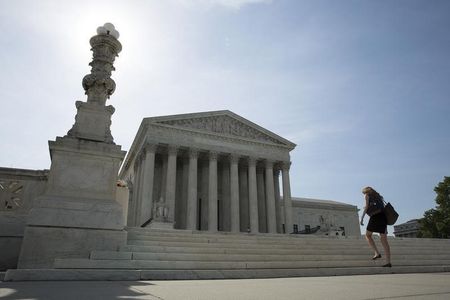By Lawrence Hurley
WASHINGTON (Reuters) - The U.S. Supreme Court on Thursday agreed to weigh whether the state of Texas violated a fair housing law by disproportionately awarding low-income housing tax credits to developers who own properties in poor, minority-dominated neighborhoods.
The court will decide whether a federal law called the Fair Housing Act allows for so-called disparate impact claims based on seemingly neutral practices that may have a discriminatory effect, an issue closely watched by the banking and insurance industries.
President Barack Obama's administration has said that disparate impact claims are allowed under the law, while conservative advocacy organizations and business groups contend they are not. The law was passed by Congress in 1968 to prohibit bias based on race in the sale or rental of housing and related services.
For decades, disparate impact claims have been a way for lawyers representing African Americans and other minorities to attack policies that do not directly discriminate yet have the effect of putting certain groups of people at a disadvantage.
Civil rights advocates have worked recently to keep cases away from a Supreme Court dominated by conservatives because they fear the court will rule that such claims cannot be made.
The nine justices will weigh a lawsuit filed by Inclusive Communities Project Inc against the state of Texas. The group works to place low-income tenants in the more wealthy, majority white suburbs of Dallas.
Inclusive Communities says the state broke the law through its process for allocating the credits made available under the federal Low Income Housing Tax Credit Program. The program gives credits to developers who provide housing for people with low incomes.
The case gives the justices a third opportunity in as many years to decide whether the Fair Housing Act allows for disparate impact claims. In recent years, the court has twice agreed to hear a case on the issue but on each occasion the dispute was settled before the justices could issue a ruling.
The case is being closely watched by insurance and banking interests because of the effect if could have on similar types of disparate impact claims made over lending and insurance practices. The U.S. Chamber of Commerce, the American Bankers Association and other business groups filed briefs urging the court to hear the case.
The Fair Housing Act does not explicitly allow disparate impact claims. The Supreme Court has never ruled on the issue. Whatever the court decides could affect the future of disparate impact claims made under another federal law, the Equal Credit Opportunity Act.
A ruling is expected by the end of June.

The case is Texas Department of Housing and Community Affairs v. Inclusive Communities Project, U.S. Supreme Court, No. 13-1371.
(Reporting by Lawrence Hurley; Editing by Will Dunham)
